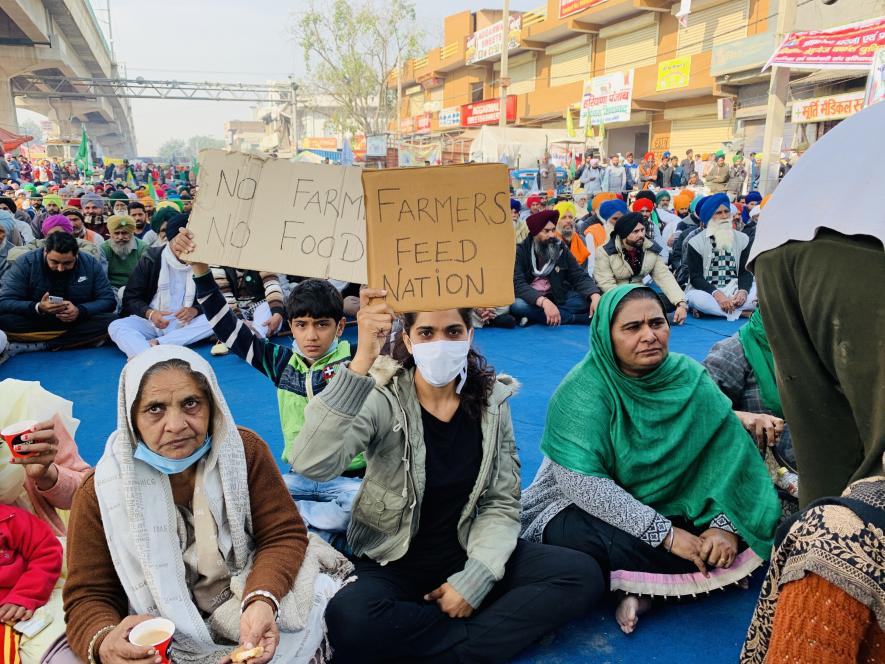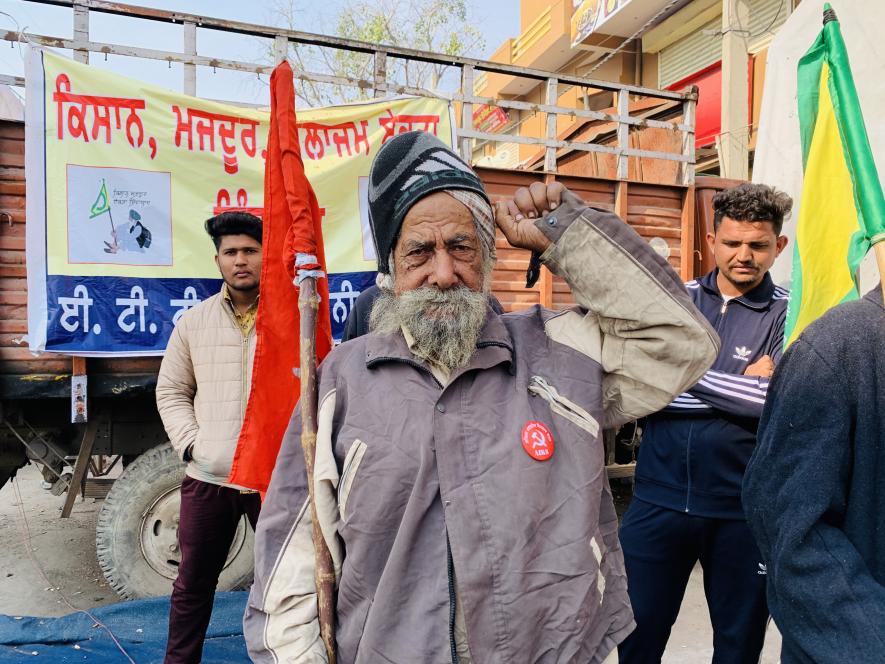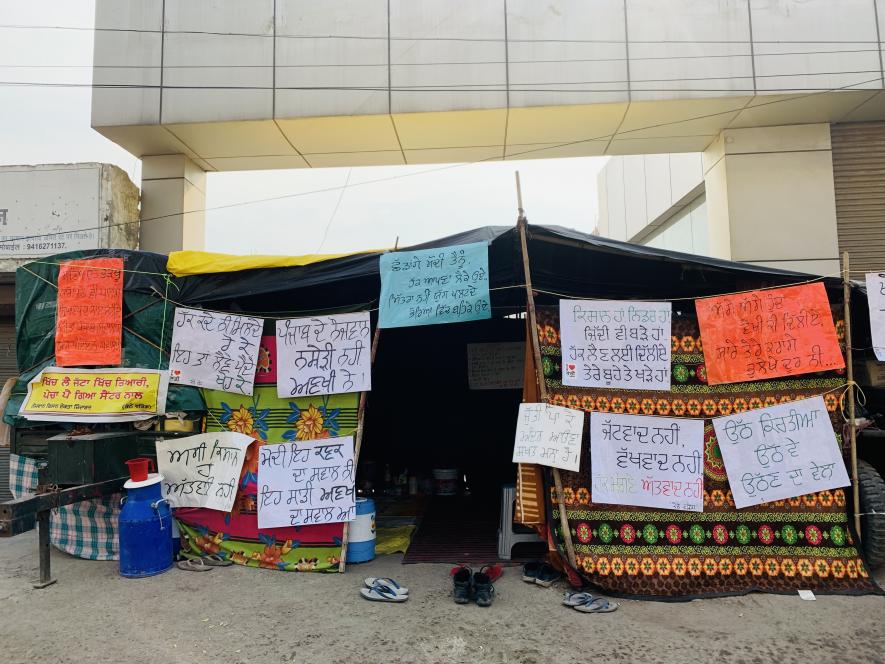‘Not Only Agriculture, Informal Sector Too Will Get Decimated’

New Delhi: With worn-out hands, Jasbeer Singh gives pinniya (a sweet) to everyone passing by, and people, in return, greet him with smiles. Sharing the story about the loads of sweets piling up beside him, Singh said: “The villagers collected milk from every home and gave it to the local confectioner. Since he could not come along with us, he requested me to distribute it.”
Singh, along with his contingent from Ludhiana, is camping on Tikri Border of the National Capital to press for repealing the recently enacted farm laws and the proposed Electricity (Amendment) Bill, 2020. Singling out the reason for his participation in the movement, he maintains that the rhetoric of double income by 2022 is beyond his comprehension. “PM Modi keeps repeating that the farmers’ income will double by 2022. What’s his roadmap? Is he suggesting that these disastrous laws will bring such a transformation?” he said.
Singh, who owns two acres, furthered his argument by citing his own example. “People in Punjab and Haryana grow paddy and wheat because they get minimum support price in APMC. I tried growing moong (a pulse) because the prices were double compared with paddy and wheat. However, the experience and the costs were not expected,” he added.
Explaining further, Singh said: “The sowing starts with ploughing the land. For an acre, a tractor consumes diesel worth Rs 2,000. Seeds, weedicides and pesticides cost Rs 1,500, Rs 1,000 and Rs 2,000, respectively. After irrigating, we wait for the crop to ripen. Irrigation costs Rs 2,000, the labour for cutting the crop costs us Rs 3,500. Once the crop is ready, it is taken to the thresher. This costs Rs 3,500. Transportation to home and mandi takes another Rs 1,500. Now, the produce entirely depends on the weather, which is quite unpredictable. On an average, I got five quintals of moong per acre, which I sold for Rs 4,000 per quintal. So, the cost is Rs 17,500 and the return is Rs 20,000. Remember, if you do not own the land, then you pay Rs 17,000 per season additionally. So, what are you saving? Why would anybody grow crops when there are no returns? On top of that, there are no jobs either in the private or public sector. This is why we are sunk neck-deep in debt.”

K S Ghuman who hails from Sangrur in Punjab, narrated the case of potato-growing farmers from his district to explain why farmers are unwilling to go for contract farming. “We did grow potatoes in collaboration with PepsiCo for its chips factory. The seeds were provided by it. But when we reached the factory with the produce, they said they only wanted potatoes that were 1.25 inches long. The produce was literally thrown on the roads and we pledged we will not grow it again.”
Satwant Singh, Sangrur district president of All India Kisan Sabha said not only agriculture but other support systems too have been dismantled with connivance from successive governments. “Agriculture developed during the Green Revolution only when the government assisted proactively with subsidies, debt from national banks, brought technology and opened several agricultural research centres and universities. Similarly, we had numerous family members who were government servants in banks, colleges, electricity stations. With the privatisation drive, we lost both support systems. The nearest electricity station where I live once employed 150 employees. Now, there are hardly 39. Local contractors give our boys only Rs 50 for digging. In this condition, these laws will throw us into the furnace of greed and plunder.”
Singh said: “We are being given the examples of the US and some European countries, but what’s the truth? I have visited these countries. I visited California, Los Angeles and Surrey in the UK. Nowhere are farmers happy.”
NewsClick met farmer leaders at Ghazipur border to gauge their mood and understanding about the ongoing agitation and the impact of laws.
Tejinder Singh, President of Terai Kisan Sangathan, said several farmers were willing for crop diversification but the returns were the prime deterrent.
“Why would a farmer move for diversification if he has no assurance about the returns. We are even willing to move for hatcheries and fisheries, but there has to some guarantee on the returns. The government must understand that the legal guarantee for MSP will only reduce its own tension about creating job opportunities. Make agriculture lucrative and there will be jobs,” he told NewsClick.

Citing his own example, Singh said: “I currently own five acres of land and get about 30 quintals of paddy per acre. Despite an MSP of Rs 1,868, I sold my paddy at Rs 1,100. If I apply the Swaminathan Commission’s formula, I will sell my produce at Rs 2,600 per quintal. Thus, now I am losing Rs 1,500 per quintal. If I translate it into months, I am losing Rs 18,750 per month. The same case applies to wheat, where I am losing a similar amount. Why would our boys leave villages for petty jobs, if we have enough returns.”
D P Singh, another farmer leader from Bulandshahr in Uttar Pradesh, said the real intention of the laws was to decimate the informal sector which currently employs about four crore people.
”I am amused but not surprised to know that very few people are aware that the UP government has passed a law on contract farming. Under the law, farmers can lease out their land to companies for 15 years. But the real question is, what will they do after they rent it out? They cannot work on their land because harvesting will be highly mechanised. They cannot build anything. Essentially, they will turn into labourers. Also, we are seeing huge investments from technology conglomerates into Indian companies involved in the supply chain of essential goods. So, their vision is quite clear. Decimate the informal sector and build monopoly,” he added.
Jagmeet Singh, sitting on a tractor trolley at the border, has his own reasons to join the protest. “I toil hard so that I can educate my children. If I am deprived of my land, how will they eat and study. It’s a death sentence for us. I will accept my death, not these laws,” he said.
Get the latest reports & analysis with people's perspective on Protests, movements & deep analytical videos, discussions of the current affairs in your Telegram app. Subscribe to NewsClick's Telegram channel & get Real-Time updates on stories, as they get published on our website.
























